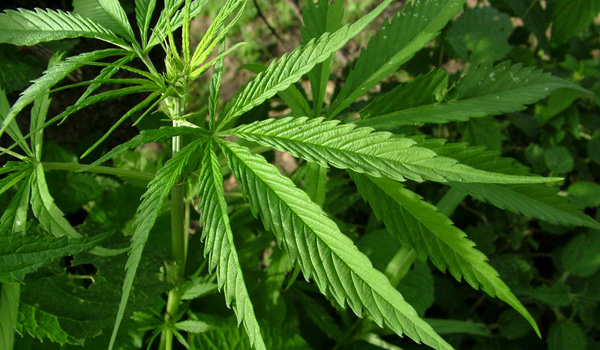Legalized Pot: Smoke It or Eat It?

The recreational use of marijuana is now legal in both Colorado and Washington, which means that (state) law-abiding Americans might soon have the choice to use a substance whose long-term health effects are still not well understood by science.
But if citizens of those two states do decide to get high on their own (or a credentialed retailer's) supply, they'll face another decision: whether to imbibe the drug in the most popular manner, by smoking it, or whether to take the gastronome's route.
Unlike tobacco, marijuana, or at least its active ingredient THC, has gained traction among users as a food additive. Perhaps the most iconic marijuana-based treat is the pot brownie, but medical marijuana dispensaries around the country now sell a wide range of THC-infused victuals, from pasta sauce and ice cream to soda and lozenges.
And with a huge influx of potential new customers to win over, many of whom may be averse to smoking, the market for "edibles" in Colorado and Washington could expand rapidly. (This all depends on lenient enforcement of the federal ban on marijuana, of course.)
To smoke or eat
So, for residents or tourists in those states who want to make an informed decision, does science have anything to say about the relative medical risks of lighting up and chowing down? [New Marijuana Laws Will Be a Public Health Experiment]
A cannabis expert who spoke to Life's Little Mysteries couldn't say definitively that marijuana's active ingredient, THC, is not carcinogenic, or cancer-causing, on its own, but he said that ingesting marijuana-derived foods does seem likely to circumvent some of the adverse effects associated with smoking the drug.
Sign up for the Live Science daily newsletter now
Get the world’s most fascinating discoveries delivered straight to your inbox.
Very little research has looked specifically into the health risks of eating THC, said Wayne Hall, an addiction researcher at the University of Queensland who has been studying cannabis for about two decades.
Nevertheless, Hall says some of the most clearly demonstrated adverse effects of long-term marijuana use are respiratory problems — such as the wheezing, sputum production and chronic cough symptomatic of chronic bronchitis, and an increased risk of respiratory infections. These ailments are specifically linked with a smoking delivery mechanism.
There is considerable debate over whether marijuana use increases the risk of cancer in humans. Evidence of an increased risk of lung cancer has been inconsistent, often confounded by the fact that many cannabis smokers also smoke tobacco, and studies linking marijuana use to other types of cancer don't necessarily demonstrate causation.
But studies that did find associations looked at people who smoked marijuana (rather than only eating it), and Hall says that any risk of respiratory cancer would most likely arise when cannabis tars are inhaled with smoke.
Moreover, many companies that manufacture edibles have preparation methods that aim to extract and isolate THC from the rest of the marijuana plant. This means that if consumers trust these procedures, the carcinogenicity of THC itself would be the relevant concern for cancer risk (excluding, of course, any possible carcinogenicity of the food involved).
A 2005 report in the journal Lancet Oncology that surveyed findings on the carcinogenicity of cannabis and its constituent chemicals, co-authored by Hall, concluded, "THC alone does not seem to be carcinogenic or mutagenic [tending to cause DNA mutation]."
Risks of the pot brownie
But none of that is to say cannabis-derived snacks are necessarily safe. Many of the adverse effects of marijuana use do not seem to be specific to smoking.
"The clearest risk [of a habit of ingesting THC] would probably be developing dependence on the drug, meaning that people would find it hard to stop if they chose to do so," Hall told Life's Little Mysteries.
Because THC takes much longer to reach the brain when the chemical is absorbed through the gastrointestinal tract, as opposed to through the lungs, edibles may also lead to dose-control difficulties. Users may take more than they intend to as they wait to feel an effect. Inexperienced users are more likely to feel the acute negative effects of marijuana intoxication, including anxiety and panic, and Hall said widespread use of edibles might cause an increase in unpleasant experiences with THC.
Some of marijuana use's possible adverse effects, such as its reported potential to lower IQ scores and its association with the diagnosis of schizophrenia, may be especially likely to impact adolescent users, said Hall. People under 21 would be prohibited from recreationally using marijuana in both Colorado and Washington under the new laws, but some have argued that the laws will nevertheless increase teen use.
Follow Life's Little Mysteries on Twitter @llmysteries. We're also on Facebook & Google+.











